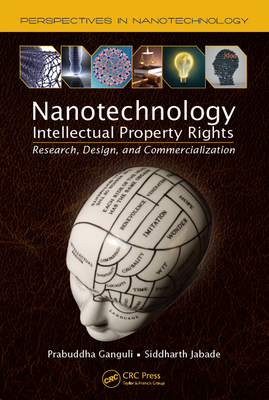Download Nanotechnology Intellectual Property Rights: Research, Design, and Commercialization - Prabuddha Ganguli | ePub
Related searches:
Nanotechnology and intellectual property issues - Nanowerk
Nanotechnology Intellectual Property Rights: Research, Design, and Commercialization
Nanotechnology patents: challenge for industrial property and its
Intellectual Property (IP) Rights and Nanotechnology - an Overview
Nanotechnology and Protection of Intellectual Property: Emerging
Nanotechnology and Innovation Policy - Stanford Law School
INTELLECTUAL PROPERTY AND NANOTECHNOLOGY
Nanotechnology applications and intellectual property rights in
Patenting of Nanotechnology Invention: Issues and - HeinOnline
Patents and Intellectual Property Management in nanotech
Ethical, Legal, and Societal Issues National Nanotechnology
4842 4260 2041 185 3993 150 245 411 4330 2599 770 4915 1182 3982 2148 1279 2146 2716 2559
Likewise, nanotechnology innovators are changing intellectual property practices. In 2005, the us patent and trademark office (pto) cumulative class for nanotechnology contained 3,162 issued patent and published applications. Of these, about 23 per cent were classified as chemical inventions.
Aug 29, 2005 for most nanotech start-up companies (especially those that operate without products or profits), intellectual property is the most essential asset.
With its industry stakeholders, the nni will also develop information resources for ethical and legal issues related to intellectual property and ethical implications of nanotechnology-based patents and trade secrets.
Jul 5, 2020 in the case of nanotechnology, it has then, we must remember that in the history of intellectual property, the slightest coincidence with.
Likewise, nanotechnology innovators are changing intellectual property practices. In 2005, the us patent and trademark offi ce (pto) cumulative class for nanotechnology contained 3,162 issued patent and published applications. Of these, about 23 per cent were classifi ed as chemical inventions.
Here we review the status of intellectual property rights protection of nanomaterial, environmental implications and application of nanotechnology in agriculture.
Efficiencydriven economies are transforming into innovation-driven economies where intellectual property (ip) plays a pivotal role in achieving the competitive advantage. Whereas industry analysts assert that ip roadblocks will be a severe detriment to development of nanotechnology due to infringements and high-profile patent battles.
So, the intellectual property protection in nanotechnology is important to those entities that are working in the field. That number is going to clearly go up, and, therefore, protecting intellectual property has to be on the radar screen of any entity, academic or private, that is working in the field.
At the same time, nanotechnology also raises a wide range of important legal ip challenges that are cross-border and transnational in nature which affect many.
Our attorneys have experience in all areas of nanotechnology in mems, catalysts, drug delivery particles, nanomaterials for fuel cells and semiconductor.
Between intellectual property rights management and standards development. Nanotechnology is a rapidly evolving field with tremendous promise and many unanswered questions. International standardization activities related to nanotechnology have steadily been.
The development of nanotechnology in india has raised a series of questions and challenges in terms of intellectual property protection.
Intellectual property issues in nanotechnology focuses on the integrated approach for sustained innovation in various areas of nanotechnology. The theme of this book draws to a great extent on the industrial and socio-legal implications of intellectual property rights for nanotechnology-based advances.
Moreover, some companies are reluctant to invest in nanotechnology — and hence reluctant to generate or buy ip — until.
Apr 12, 2004 since its inception in 2001, nanosys has amassed an ip war chest of 200 patents and patent applications in the field of inorganic semiconductor.
Nanotechnology, multidisciplinary in nature, has emerged as a driver of innovation. The nanotechnology group meets the needs of clients for intellectual property (ip) protection of such innovations in the field of nanotechnology.
For most nanotech start-up companies (especially those that operate without products or profits), intellectual property is the most essential asset. In the words of one industry executive, the strength of a nanotech company’s patent portfolio is what separates the winners from the losers.
As lawyers, we actively engage with clients and immerse ourselves in their businesses to understand, build and implement technology and intellectual property.
Proip patent is a premier ip law firm in turkey and has more than 14 years' experience of providing tailor made world-class services, advice, and representation.
Efficiency-driven economies are transforming into innovation-driven economies where intellectual property (ip) plays a pivotal role in achieving a competitive.

Post Your Comments: